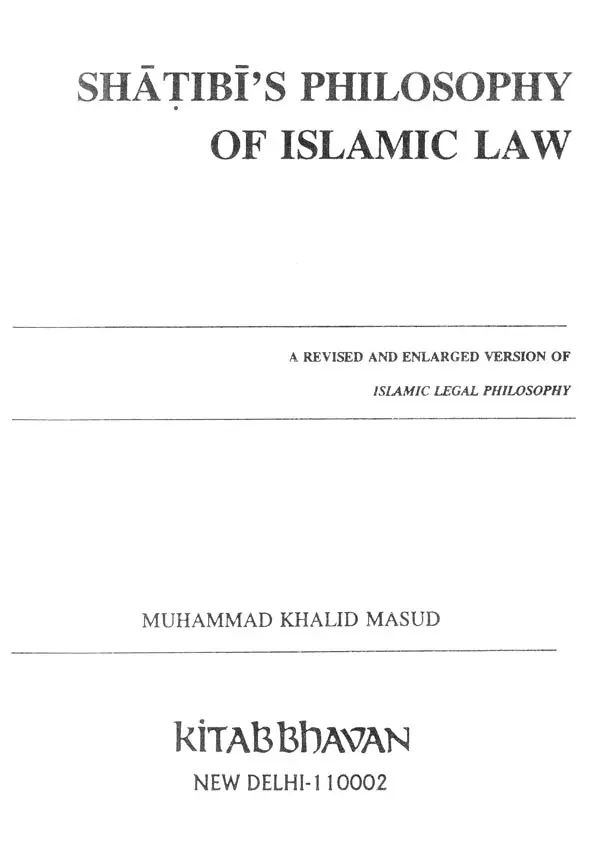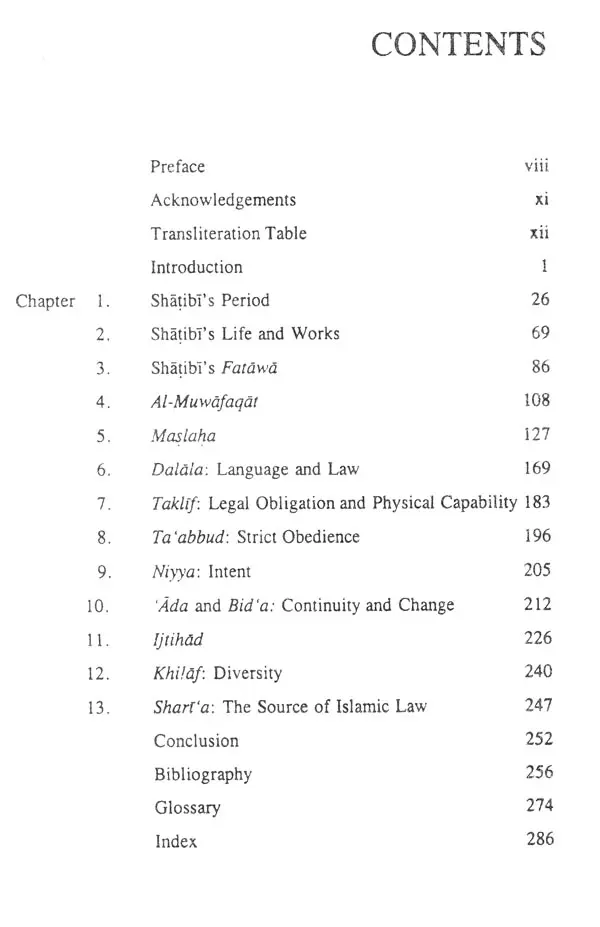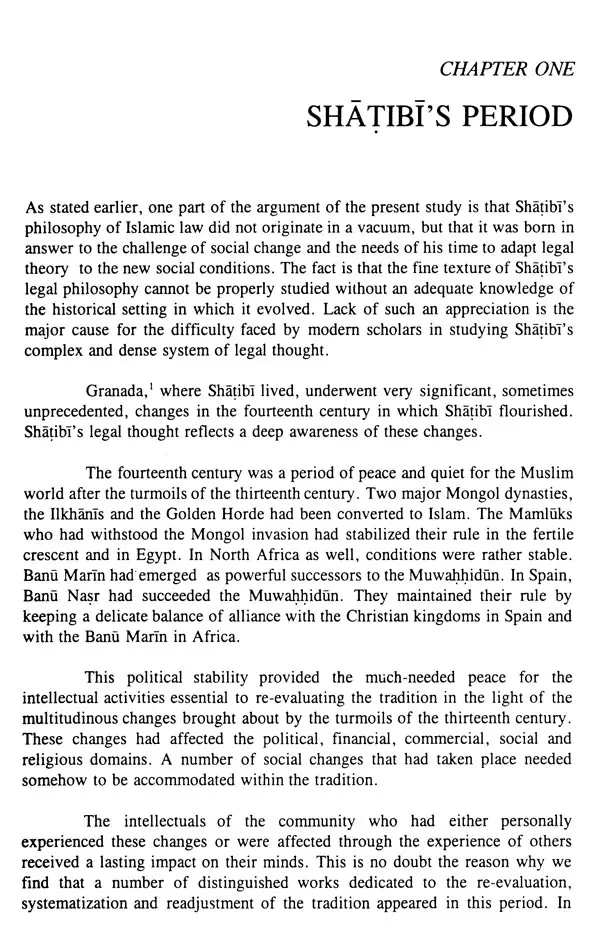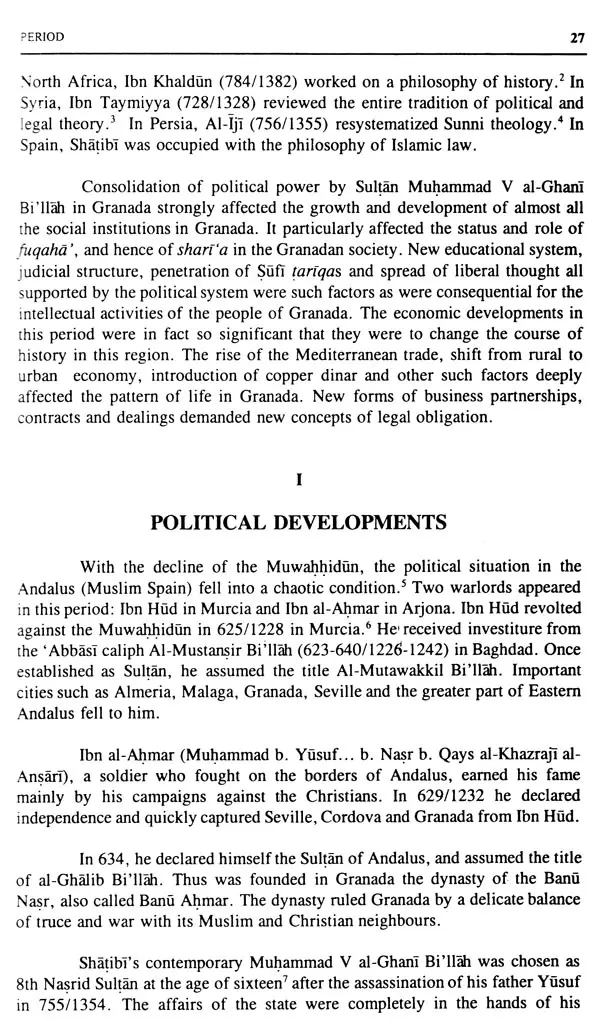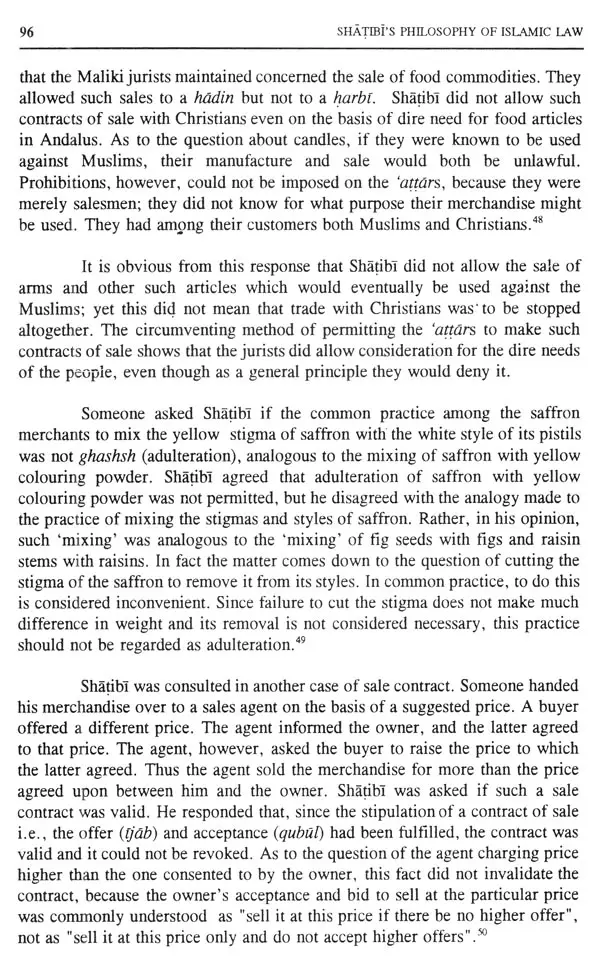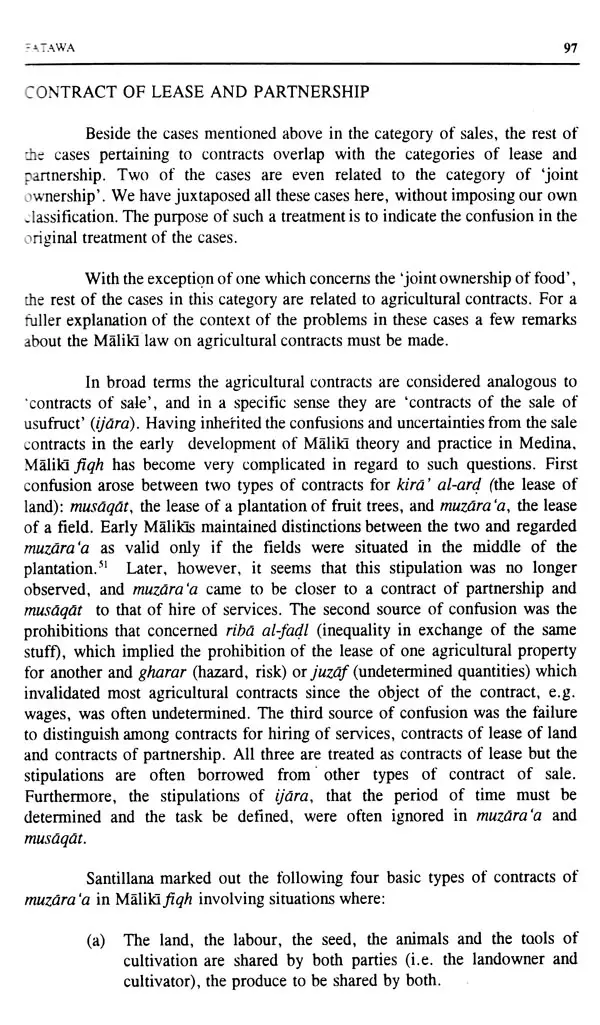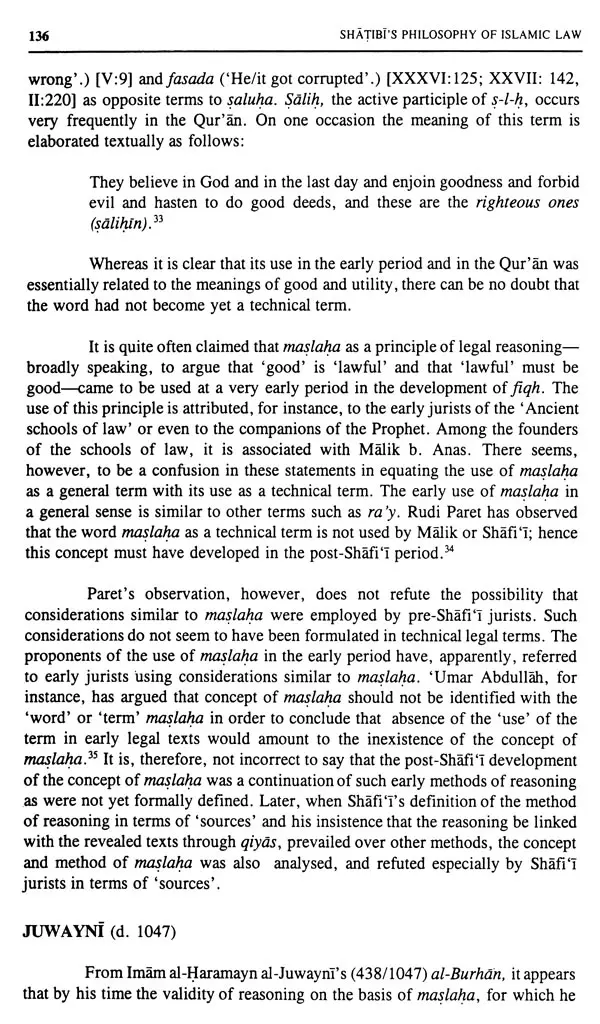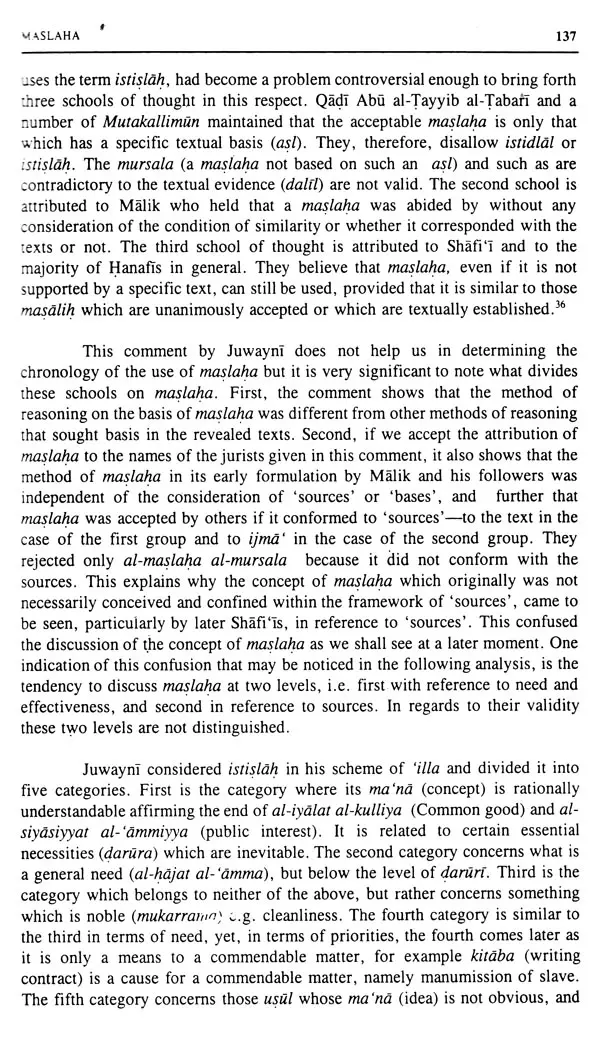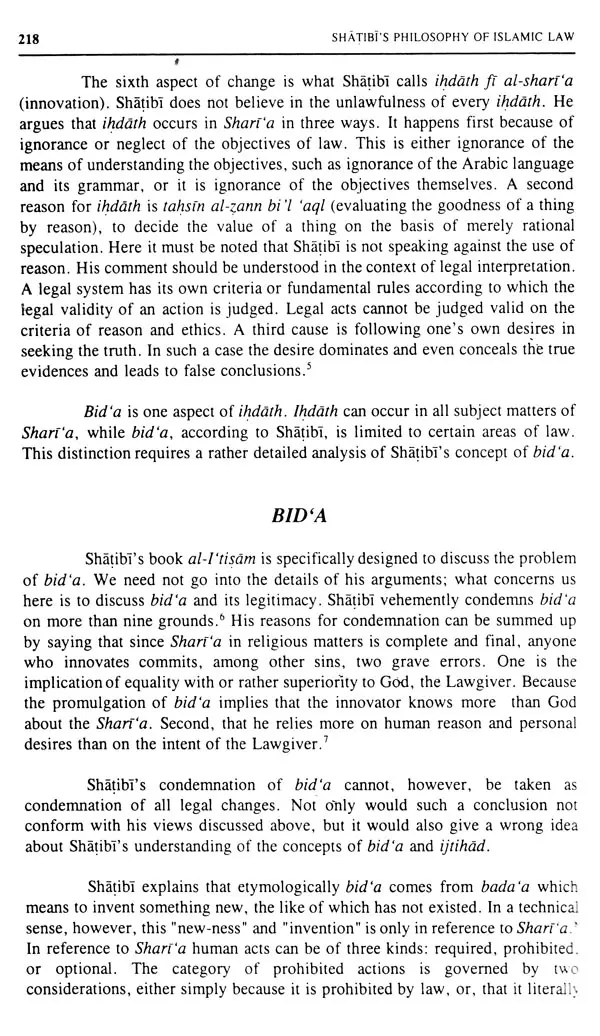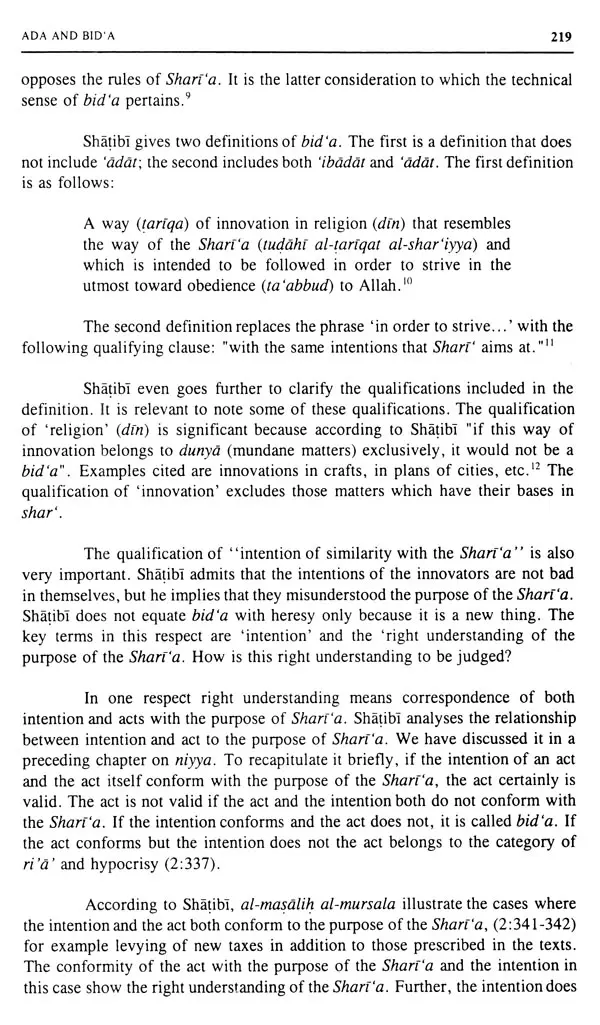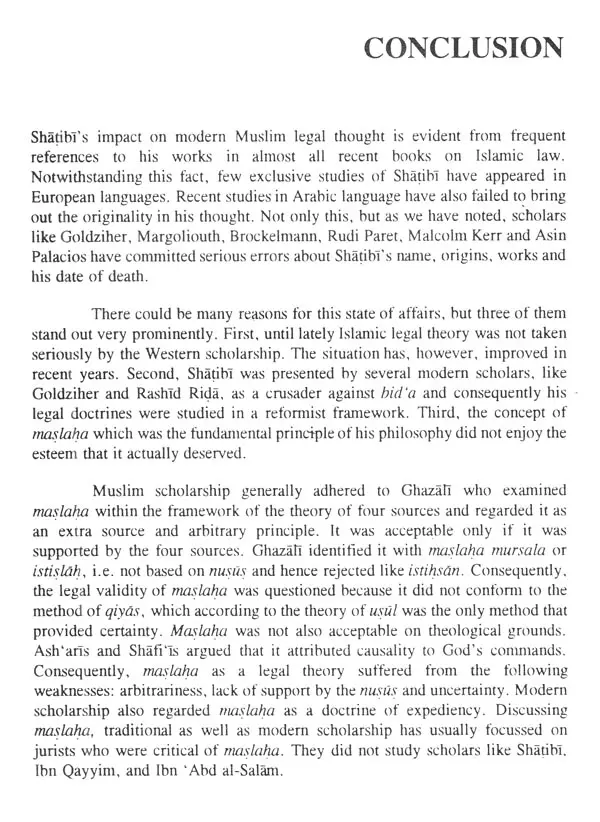
Shatibi's Philosophy of Islamic Law
Book Specification
| Item Code: | UBE291 |
| Author: | Muhammad Khalid Masud |
| Publisher: | KITAB BHAVAN |
| Language: | English |
| Edition: | 2022 |
| ISBN: | 9788171512348 |
| Pages: | 302 |
| Cover: | HARDCOVER |
| Other Details | 10.00 X 6.50 inch |
| Weight | 620 gm |
Book Description
Muhammad Khalid Masud, born in 1939, obtained M.A. from Punjab University in 1962 and M.A. and Ph.D. from McGill in 1969 and 1973 respectively. He is presently a Professor and has served for many years as Editor, Islamic Studies.
Dr. Masud is the author of Islamic Legal Philosophy (1977), and Iqbal Ka Tasawwur-i-Ijtihad (1985). He has contributed a large number of research papers on subjects relating to Islamic Law.
Abù Ishaq al-Shatibi's (d. 790/1388) concept of maslaha forms the basis of his philosophy of Islamic law, the doctrine of maqasid al-shart'a. There are frequent references in modern Muslim writings to Shätibi's doctrines and their relevance to the problems of modern Islamic legal theories. Some of Shätibi's works, hitherto existing only in manuscripts, have been published. Studies on Shätibi's idea of maslaha and some other aspects of his thought have also appeared in Arabic language. Shätibi's al-Muwafaqat has been translated into Turkish and Urdu languages. Nevetheless, no exclusive study of Shätibi's legal philosophy appears to have been made in any European language. The present study that first appeared under the title Islamic Legal Philosophy in 1977, was the first attempt in this regard, and to our knowledge, it still remains so.
In his doctrine of maqasid al-shart'a, Shätibi not only develops the concept of maslaha as the basis of rationality and extendibility of Islamic law to changing circumstances, but also presents it as a fundamental principle for the universality and certainty of Islamic law. Maslaha, initially a concept attributed to Malik and his school, was developed later by Shäfi'i (e.g. Ghazali), Hanbali (e.g. Tüfi) and other jurists and criticised on various grounds. Certain theological and philosophical considerations had limited the legal validity of the concept of maslaha. The legal theorists, even Mäliki jurists, therefore tended to deal with it as an expedient rather than an independent principle. Shätibi's penetrating analysis of such doctrines and his definition of this concept in the context of maqasid al-shart'a freed it from such limitations.
Contrary to the opinion of some of the reviewers of the first edition of this book, Shätibi's contribution cannot be fully appreciated by narrowing it down as a Mâliki doctrine. As the title of Shatibi's book al-Muwafaqat (An agreement between the legal theories and principles of the Mäliki and Hanafi school) also indicates, Shätibi's treatment of maslaha was not limited to the Maliki school. The present study has therefore used sources from different schools of law, including modern writings on the subject to understand Shatibi's legal theory.
The relationship between legal theory and social change is one of the basic problems of the philosophies of law. "Law" having its semantic association with natural laws, is assumed to be fixed, determined, certain, permanent and, therefore, unchanging. Yet, it always faces the challenge of social change which demands adaptability from it. Most often the impact of social change is so profound that it affects legal concepts as well as institutions and thus creates a need for a fresh philosophy of law. The problem of social change and legal theory is of particular significance in Islamic legal philosophy Islamic law is generally defined as religious, sacred and hence immutable. How does such a law face the challenge of change?
The above question has brought to the fore the problem of the adaptability of Islamic law which has been widely discussed, yet remains debatable. The problem has been generally formulated in the form of the following question: Is Islamic law immutable or is it adaptable to the extent that the change and modernization sought can be pursued under its aegis?
Broadly speaking, there have been two points of view in answer to this question. One view, which is shared by a large number of Islamicists such as C.S. Hurgronje and J. Schacht, and by most traditionalist Muslim jurists, maintains that in its concept, and according to the nature of its development and methodology, Islamic law is immutable and hence not adaptable to social changes. A second view, which is upheld by a few experts on Islamic law such as Linant de Bellefonds and by the majority of Muslim reformists and jurists such as Subhi Mahmasäni, contends that such legal principles as the consideration of maslaha (roughly translated, human good), and ijtihad (independent legal reasoning) and the history of the adaptability of Islamic law sufficiently demonstrate that Islamic law is adaptable to social change.
Before any general conclusions be drawn regarding the adaptability of Islamic law, the problem requires a great deal of spade work. For a clear analysis, the primary task is to study the various aspects and levels of this problem which should be distinguished sharply from one another and yet be studied in conjunction with one another. Furthermore, since Islamic theory has developed through the writings of various jurists having different historical backgrounds, the problem of adaptability requires to be studied in specific reference to individual jurists in their historical settings.
Book's Contents and Sample Pages
